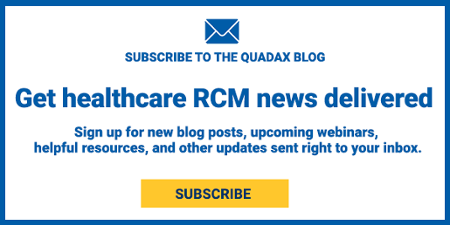Proposed rule aims to improve data sharing and interoperability by streamlining prior authorization
A massive administrative burden
Prior authorization is a common source of frustration in healthcare. According to a recent survey from the American Medical Association, 28% of providers reported that the prior authorization process has affected care delivery and led to a serious adverse event. Notably, 88% said the burden associated with prior authorization has increased over the last five years for their practice. And, 86% indicated that the burden associated with prior authorization in their practice was high or extremely high, requiring an average of nearly two business days per week.
According to the latest CAQH Index, little headway has been made by increasing use of electronic processes for prior authorization. This is partly due to an estimated 14% year-over-year increase in the number of prior authorizations nationally, and a 27% increase since the 2016 Index. While the use of fully electronic prior authorization transactions increased four percentage points, the proportion of prior authorizations conducted manually increased 16 percentage points from the last report.
The Index reports that across the healthcare system, the medical industry could save $417 million annually by transitioning to electronic prior authorization transactions. Providers can realize most of these savings—$278 million.
CMS attempts to alleviate the burden
In an initiative that builds on the Interoperability and Patient Access final rule published in May, The Centers for Medicare & Medicaid Services (CMS) has issued a proposed rule that would improve the electronic exchange of healthcare data among payers, providers, and patients, and streamline processes related to prior authorization.
CMS cites the COVID-19 pandemic as an impetus behind the action, which it says has demonstrated the impact of inefficiencies in the healthcare system, including lack of data sharing and access, making it difficult for patients to navigate care.
Among the advantages CMS says the proposed rule would address:
- The ability to improve quality of care and lower costs
- Offer payers and providers access to complete patient histories
- Improved patient access to health information
- Reduction of unnecessary care
These objectives would be accomplished by building application programming interfaces (APIs) between Medicaid, Children’s Health Insurance Program, and Qualified Health Plan programs—and third-party apps—which facilitate the electronic exchange of data. The proposed rule does not apply to Medicare Advantage plans.
This rule would also require payers to send a decision back to providers within 72 hours in some cases and provide a reason for a denial. Payers would also be required to make public just how many procedures they are approving.
Payers would also be responsible for building an API that allows patients to continually access their health information even after leaving one insurer for another, ensuring patients don't lose access to that information.
CMS said it would also cut down on repeated prior authorizations, which it says are unnecessary.
The comment period ends Jan. 4 and the policies in the rule are set to go into effect in 2023.
Quadax can help
You don’t have to wait until 2023 to spend more time on what’s most important—patient care. Quadax Healthcare Authorization helps you verify medical necessity up front to ensure procedures are approved prior to service so you can:
- Help patients make more informed financial decisions about care
- Improve your patient experience
- Improve patient access through streamlined process
- Protect revenue and improve efficiencies
Our Patient Access solution empowers your organization to become more patient centric, get paid for the services you provide, proactively manage exceptions, and keep what you get paid.
Let’s take on the revenue cycle together!


